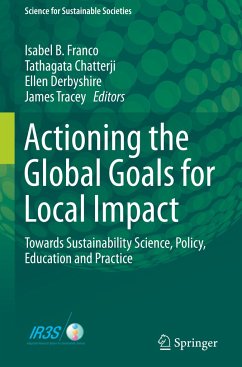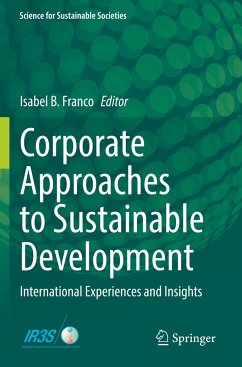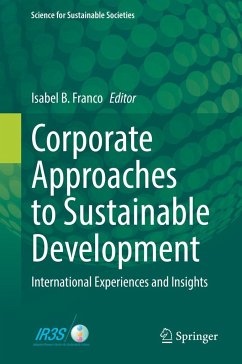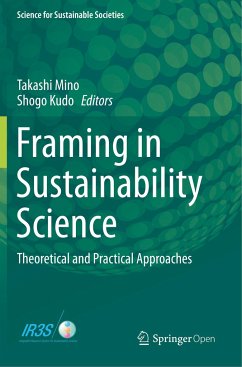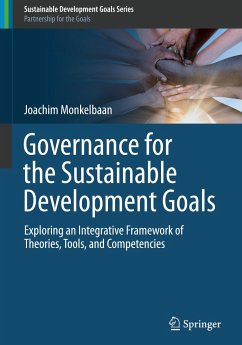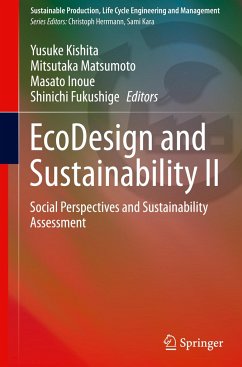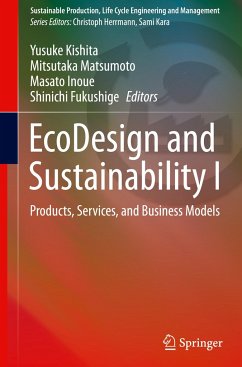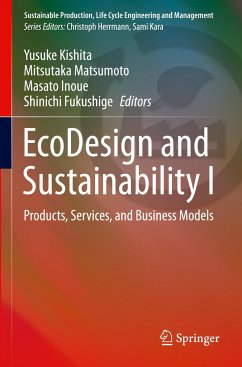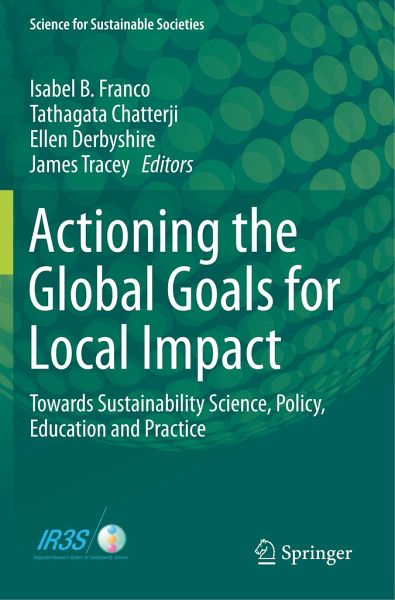
Actioning the Global Goals for Local Impact
Towards Sustainability Science, Policy, Education and Practice
Herausgegeben: Franco, Isabel B.; Chatterji, Tathagata; Derbyshire, Ellen; Tracey, James
Versandkostenfrei!
Versandfertig in 6-10 Tagen
76,99 €
inkl. MwSt.

PAYBACK Punkte
38 °P sammeln!
This book highlights the value of sustainability science in newly emerging and innovative approaches to research, education, capacity building and practice in order to transform rhetoric into impact sustainability. Presenting case studies from various industries, sectors and geographical contexts targeting the seventeen (Sustainable development Goals (SDGs) outlined in the 2030 Agenda, it provides insightful recommendations to create sustainable impact while at the same time achieving the global goals.The book addresses the fundamental question of how sustainability rehtoric can be transformed...
This book highlights the value of sustainability science in newly emerging and innovative approaches to research, education, capacity building and practice in order to transform rhetoric into impact sustainability. Presenting case studies from various industries, sectors and geographical contexts targeting the seventeen (Sustainable development Goals (SDGs) outlined in the 2030 Agenda, it provides insightful recommendations to create sustainable impact while at the same time achieving the global goals.
The book addresses the fundamental question of how sustainability rehtoric can be transformed into impact sustainability research, education and capacity building and as a result, how existing approaches in science, curricula and practice are mitigating the demands emerging from addressing global sustainable development in an impactful and innovative manner. Providing recommendations for impact sustainability in science, curriculum on how to address pressing sustainability issues and contribute toward achieving the SDGs, this book is an essential reference for both academics and professionals.
The book addresses the fundamental question of how sustainability rehtoric can be transformed into impact sustainability research, education and capacity building and as a result, how existing approaches in science, curricula and practice are mitigating the demands emerging from addressing global sustainable development in an impactful and innovative manner. Providing recommendations for impact sustainability in science, curriculum on how to address pressing sustainability issues and contribute toward achieving the SDGs, this book is an essential reference for both academics and professionals.



